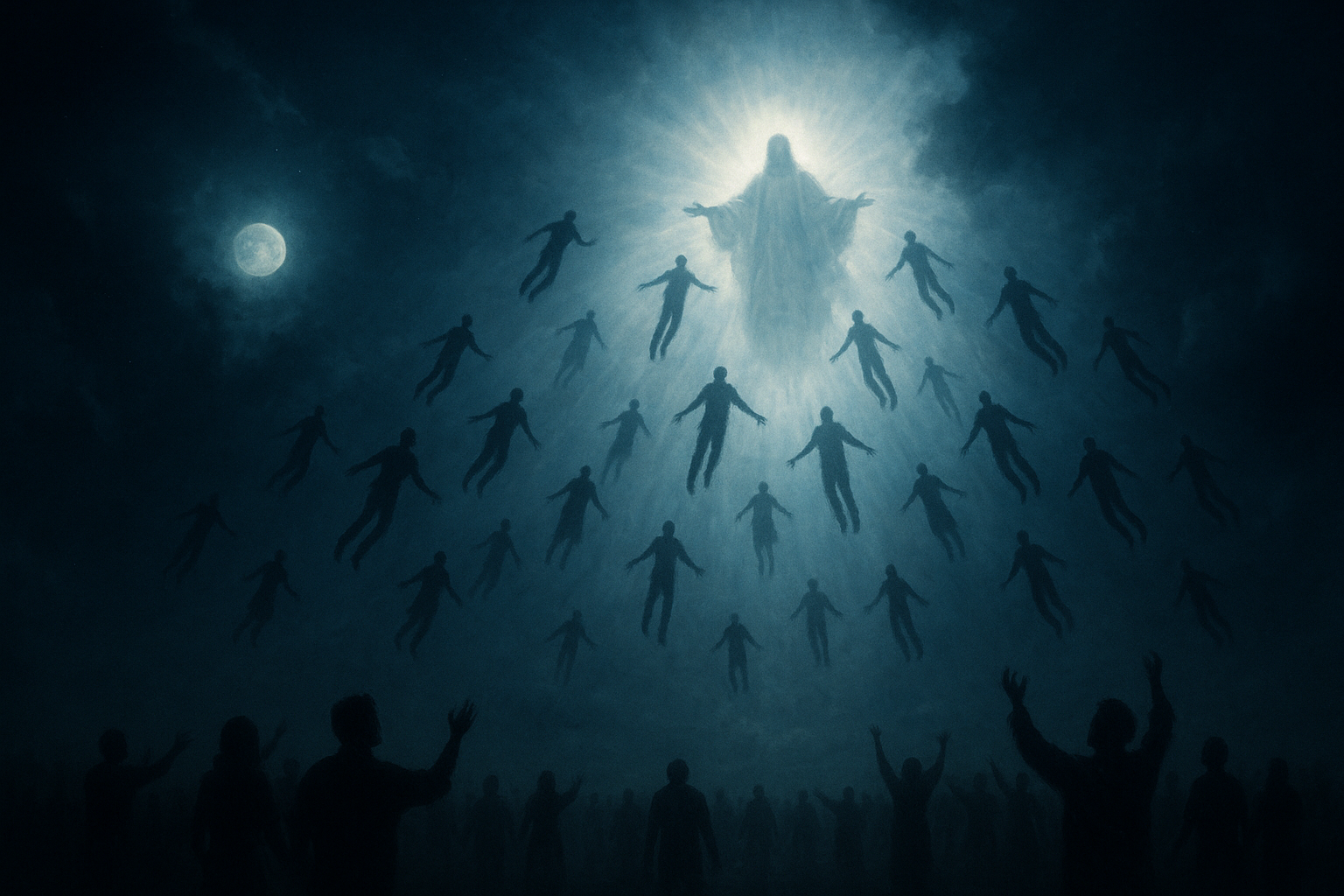Or else, there’s no Rapture at all.
Every now and again, the question of the Rapture comes up—especially with a dear brother of mine who has always struggled to grasp the logic behind it.
Though I do not divide over views of the Rapture, nor make it a test of orthodoxy, I do hold a strong conviction on the matter. And I believe it is worth setting down in writing the line of reasoning I shared with him the last time we discussed it.
On that occasion, he had begun to lean toward the idea that the Rapture and the Second Coming might be one and the same event—a position he considered perhaps the most logical.
I begged to differ. If the Rapture exists at all, it must be a distinct event from the Second Coming—and it must occur before the Tribulation. Any other view, to my mind, collapses under the weight of Scripture and reason alike.
Distinction of Events
If the Rapture and the Second Coming are the same event, then why do they bear two names? We do not normally give two distinct names to the same event—unless we are confused. Moreover, the nature, participants, and purpose of these events are utterly different. At the Second Coming, Christ returns to the earth, touches down on the Mount of Olives (Zech 14:4), defeats the enemies of Israel, and inaugurates His Messianic reign. But in the Rapture, He comes in the air (1 Thess 4:17) to receive the Church to Himself. These are not the same thing.
Mission Interrupted
Christ’s first coming was not a failed mission—it was an interrupted one. He came to offer the Kingdom to Israel (Matt 4:17; 10:5–7), the long-promised Messianic reign of David’s Son. But Israel rejected her King, and so the Kingdom was postponed. The Second Coming will see that mission resumed and completed. He will return not to start something new, but to finish what He began—to reign from David’s throne in Jerusalem (Luke 1:32–33).
Thus, the Second Coming is Israel-focused and Kingdom-centred. But the Rapture has nothing to do with Israel, Jerusalem, or Kingdom rule. It is a promise to the Church, given apart from any national or territorial context.
A Pattern Throughout Scripture
The principle is simple and repeated: God does not judge the righteous with the unrighteous. Before He pours out wrath, He removes His people.
- Enoch was taken before the flood (Gen 5:24). He was not Noah—Noah is a picture of Israel preserved through the Tribulation. But Enoch, who “walked with God,” was taken before judgment began. A picture of the Church.
- Lot was taken out of Sodom before fire fell (Gen 19). Abraham rightly argued that the Judge of all the earth would not destroy the righteous with the wicked. God agreed.
- Rahab, a believing Gentile, was rescued before Jericho was destroyed (Josh 6). She dwelt on the wall—yet her portion alone was spared. She was brought out before judgment, into the fold of Israel, to dwell forever among them.
- Noah’s flood, which Jesus compared to the Tribulation (Matt 24:37–39), likewise follows this pattern: one is taken out, one passes through, many perish. The Church is not Israel and not the world. It is removed beforehand.
The Time of Jacob’s Trouble
Jeremiah 30:7 speaks of the “time of Jacob’s trouble,” a reference to the Tribulation. The Tribulation is not about the Church—it is about Israel and her enemies. It has two purposes: to bring national repentance to Israel (Zech 12:10) and to destroy the nations that come against her. The Church is neither Israel nor her enemy. She has no place in this period. Why should she be present?
The Church is Already Ready
Those who insist the Church must be made “ready” for Christ through the Tribulation misunderstand the Gospel. The Church is already blameless. “Christ loved the Church and gave Himself for her… that He might present her to Himself a glorious church, not having spot or wrinkle or any such thing” (Eph 5:25–27). The Bride of Christ is not perfected by wrath but by grace. Her righteousness is already complete in Him.
In Conclusion
If the Rapture exists at all, it cannot be the same event as the Second Coming. It must be a separate event, with a separate purpose, involving a distinct group (the Church), and it must occur before the Tribulation begins. Otherwise, it is no Rapture at all.
I do not require others to share this view, and I remain in fellowship with all who believe the Gospel of grace. But to my mind and heart, this position alone preserves the consistency of God’s promises, the distinctiveness of Israel and the Church, and the grace extended to His spotless Bride.
Let the reader consider.
PS: “Three Comings?”
Though not part of the original chat with my brother, recently I found myself once again having to counter the “three comings” objection.
This common objection argues that belief in the Rapture implies a problematic “third coming” of Christ. But this objection trades more on semantics than substance. It is, at best, a categorical confusion—one that places undue weight on terminology rather than theological function.
Traditionally, what we call the “first” and “second” comings refer to the two phases of Christ’s Messianic mission to Israel, as explained above. By contrast, the Rapture serves a different audience, a different purpose, and a different mode. It is not a coming to the world, but a taking from it. It does not involve national Israel, the establishment of the Kingdom, or the defeat of her enemies. Rather, it is a private promise to the Bride, a removal of the Church before the judgment that is to come.
So, in that sense, it cannot be catalogued as a third coming, since that kind of terminology is theologically charged to mean something that has to do with Jesus’ messianic mission to Israel.


Leave a Reply